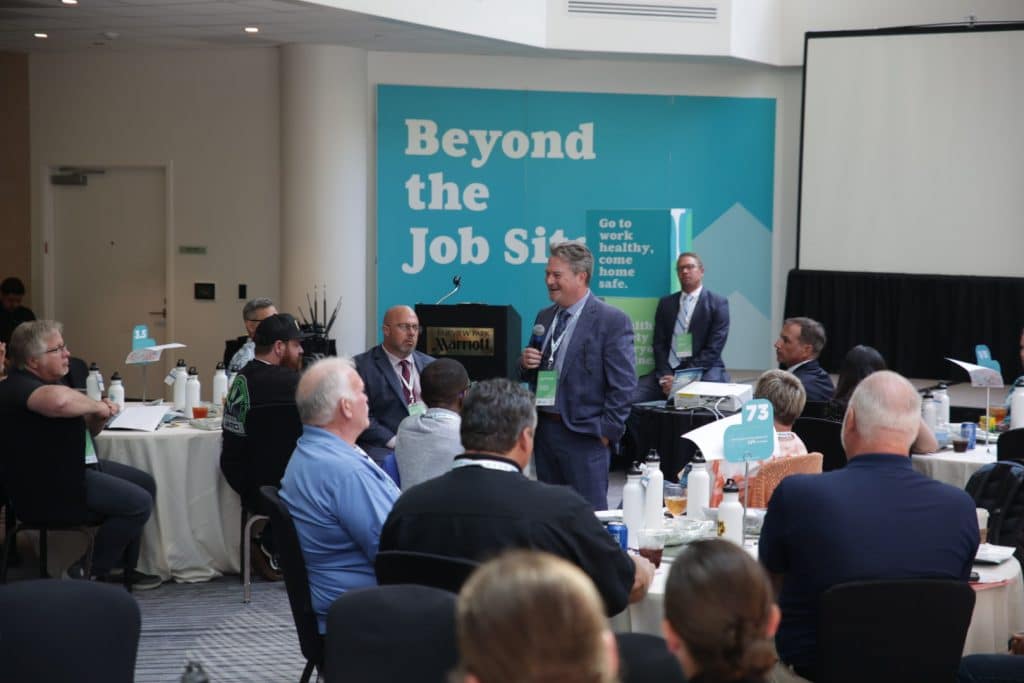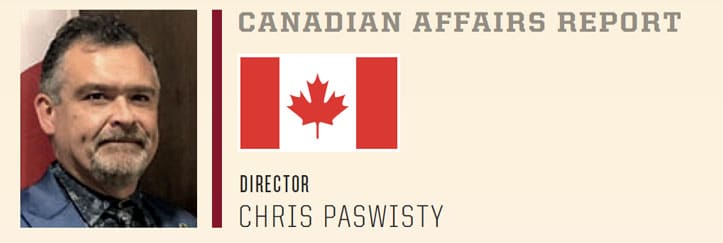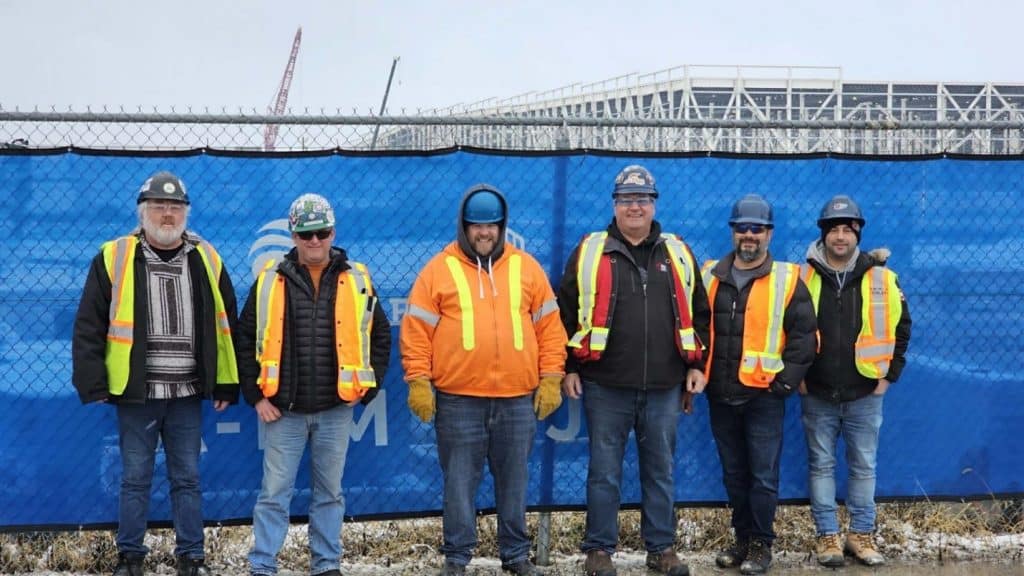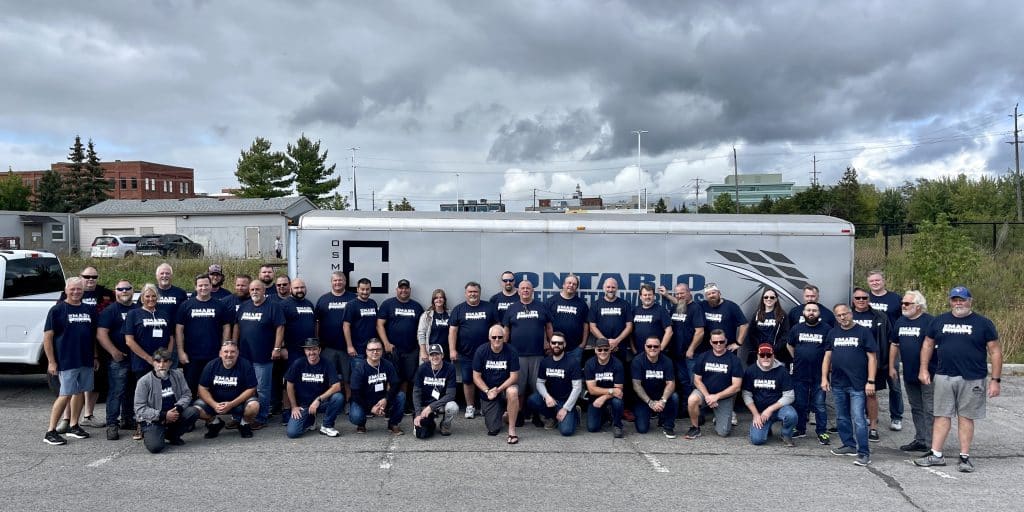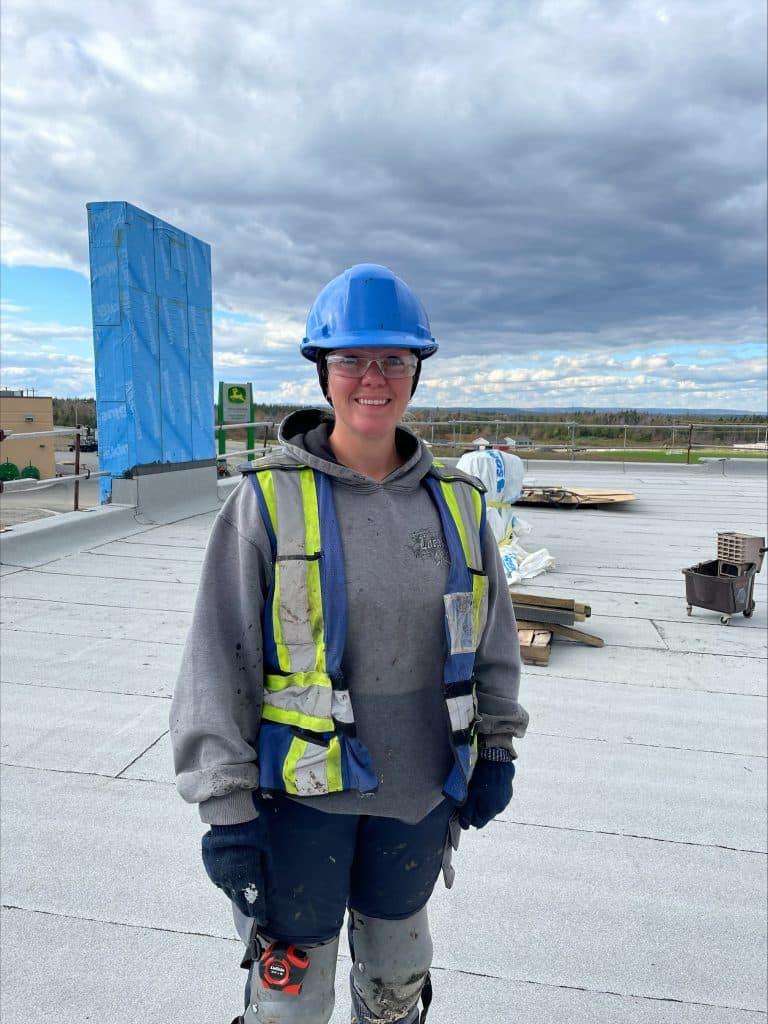Working families across North America continue to bear the brunt of the climate crisis, from extreme heat and natural disasters to poor air quality caused by wildfire smoke. The Canadian government is pursuing aspirational green economy goals in response — and SMART Canada is working to take advantage, organizing and recruiting to make sure the provinces’ sustainable future is union made.
“Transitioning Canada’s workforce to net-zero and ensuring our members receive the skills required to lead the change — without losing jobs — is critical to our economy,” said SMART Director of Canadian Affairs Chris Paswisty.
To that end, SMART Canada recently targeted potential recruits across the nation with a digital advertising campaign. Students and guidance counselors received a video introducing them to the skilled trades, with a link to SMART’s Canadian website providing information on how to get involved. The video proclaims: “This is OUR time, so think green, think clean, think SMART” — emphasizing that a new focus on green industries provides bountiful career opportunities.
“We see the worsening effects of climate change every year,” Paswisty added. “Taking action isn’t just about the future of our planet and the world we leave behind for the next generation. This is about providing for our members, both today and tomorrow.”
The Canadian government’s current goal is to achieve net-zero carbon emissions, as a society, by the year 2050. Doing so will require a massive, nationwide effort — one that will rely largely on SMART’s skilled sheet metal workers and roofers. SMART Canada’s new apprenticeship web page underlines that fact, making clear that our green energy future will create plenty of jobs.
“Our sheet metal workers fabricate and install proper ventilation and air filtering systems, ensuring the overall health and energy efficiency of schools, offices, hospitals, factories, nuclear plants and homes,” said Paswisty. “Our architectural and roofing members play a crucial role in the building envelope, again helping structures operate efficiently, and they install green roofing that helps reduce greenhouse gases and improve air quality. Canada needs our members to complete the green transition.”
Union workers are being helped by political action. The Government of Canada’s 2023 federal budget featured a far-reaching focus on Canada’s green economy, including broadened investment in private-sector-led infrastructure, strong responses to the U.S. Inflation Reduction Act and much more. Perhaps most importantly, the budget tied green tax incentives to one of the strongest definitions of prevailing wage Canada has ever seen — one that incorporates union compensation, benefits and pension contributions, helping create good-paying union jobs as Canada transitions to sustainable energy.
In addition, Canada’s Building Trades Unions (CBTU) are taking steps to make sure today’s workers aren’t left behind. Funded by Employment and Social Development Canada’s Union Training and Innovation Program (UTIP) — which SMART Canada and the CBTU lobbied for extensively — CBTU’s “Building It Green” national training program aims to integrate climate literacy into already existing construction trades education and training, helping apprentices, journeypersons, inspectors and training instructors take on the pressing concerns of climate change. SMART Local 280 (Vancouver, B.C.) President and Training Coordinator Jud Martell helped develop the trade-specific curriculum for SMART members.
There’s no questioning the fact that the climate crisis is, in fact, a crisis, Paswisty added. But meeting the challenge head-on provides a way forward, both for our communities and for SMART members.
“We are ready to grow and meet the demand by welcoming Canadians into the skilled trades, and we will collaborate with the government to continue driving Canadians towards a career in the trades,” he concluded.
